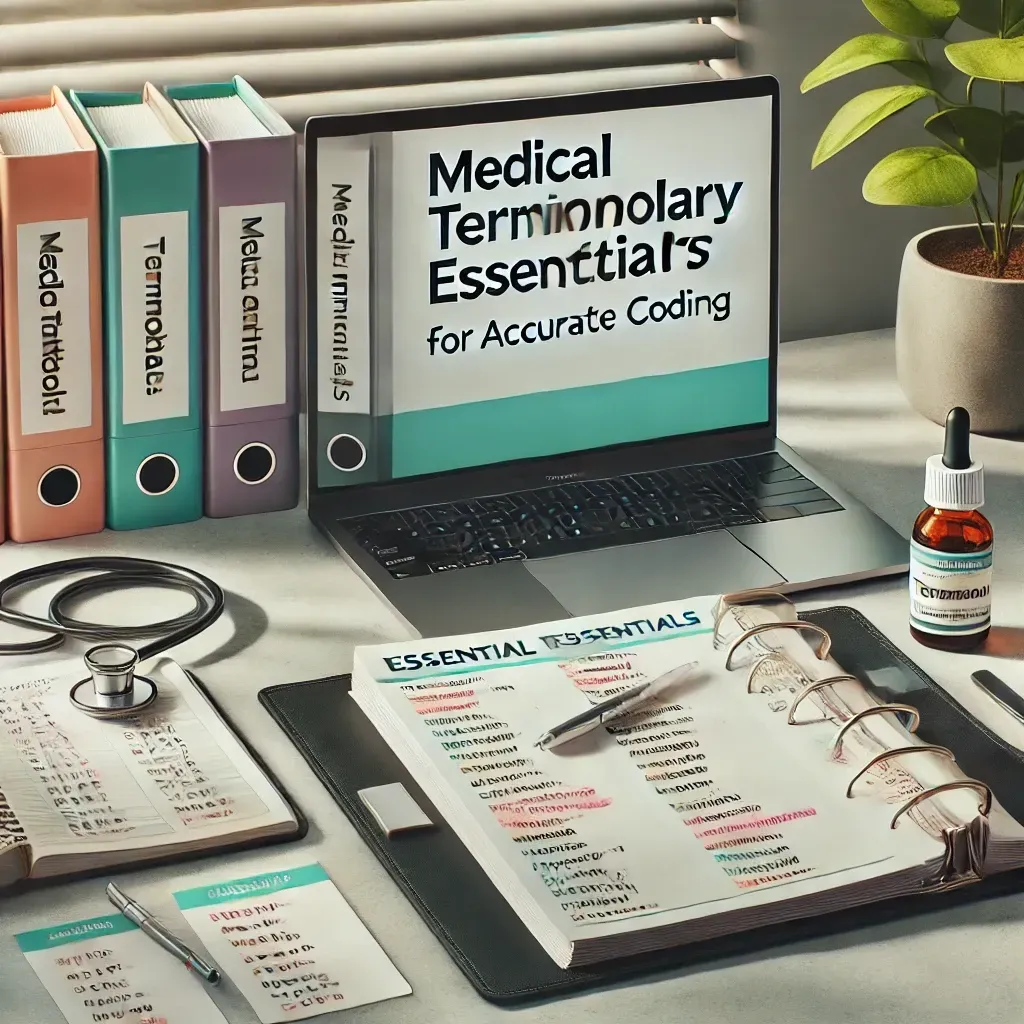
The Role of Medical Terminology in Improving Coding Compliance and Reducing Claim Denials
The Role of Medical Terminology in Improving Coding Compliance and Reducing Claim Denials
Introduction
Medical terminology is the foundation of accurate medical coding. It enables coders to understand, interpret, and assign the correct codes to diagnoses and procedures based on clinical documentation. Proficiency in medical terminology not only improves coding compliance but also helps reduce claim denials. This article explores how medical terminology enhances coding accuracy, supports compliance, and helps minimize claim denials in healthcare.
1. Understanding Medical Terminology’s Importance in Coding
Defining Medical Terminology in Coding
Medical terminology consists of the language used to describe body systems, diseases, procedures, and medical conditions. Coders rely on this language to accurately interpret clinical notes and assign the correct codes.
Medical Terminology as a Foundation for Compliance
By understanding terminology, coders can confidently select codes that align with documentation and payer guidelines, ensuring compliance in medical billing practices.
2. How Medical Terminology Supports Coding Compliance
Accurate Interpretation of Clinical Documentation
Proficiency in medical terminology allows coders to fully understand the details in clinical documentation, supporting accurate and compliant code selection.
Aligning with Payer and Regulatory Standards
Many payers have specific guidelines regarding terminology. Coders who understand medical terminology are better equipped to meet these standards, reducing the risk of errors and rejections.
3. Reducing Claim Denials through Proper Terminology
Avoiding Misinterpretation Errors
Misinterpretation of terms can lead to incorrect coding, resulting in claim denials. Coders who understand terminology avoid mistakes caused by confusion over similar terms or incomplete documentation.
Ensuring Specificity in Diagnosis Coding
Medical terminology knowledge enables coders to assign the most specific codes, a requirement by many payers to justify medical necessity and avoid claim rejections.
4. Common Terminology-Related Errors in Coding
Misunderstanding Similar Terms
Many medical terms sound alike but have different meanings, such as “arthritis” (joint inflammation) and “arthrosis” (joint condition). Coders must carefully review terms to ensure accuracy.
Omitting Details Due to Lack of Terminology Knowledge
Without a strong grasp of medical terminology, coders may miss important details, resulting in incomplete coding. Comprehensive knowledge allows coders to capture all relevant information.
5. Key Medical Terminology for Compliance
Common Terminology for Body Systems
Knowing basic terms related to each body system, such as cardio (heart) for cardiovascular or neuro (nerves) for nervous, helps coders identify the correct category and improve compliance.
Prefixes and Suffixes That Indicate Specificity
Prefixes and suffixes provide clues to a term’s meaning. For example, -itis indicates inflammation, and -ectomy indicates surgical removal. Recognizing these components supports accurate code selection.
6. How to Enhance Your Medical Terminology Skills for Compliance
Investing in Medical Terminology Courses
Taking courses specifically focused on medical terminology helps coders build a solid foundation and improve coding compliance over time.
Utilizing Flashcards and Practice Quizzes
Flashcards and quizzes are effective ways to practice and memorize terms, especially for complex or unfamiliar terms that frequently appear in coding.
Regularly Reviewing Coding Manuals and Guidelines
Coding manuals often include definitions and notes on commonly used terms. Reviewing these regularly helps coders stay compliant with terminology standards.
7. The Role of Medical Terminology in ICD-10-CM Coding
Enhancing Specificity in ICD-10-CM Codes
ICD-10-CM requires a high level of detail in code selection. Medical terminology knowledge enables coders to select specific diagnosis codes that fully describe the patient’s condition.
Supporting Accurate Diagnosis Documentation
When coders understand medical terminology, they can better communicate with healthcare providers about documentation needs, ensuring that all relevant terms are documented.
8. Improving Communication with Healthcare Providers
Clarifying Documentation for Coding
Understanding terminology allows coders to ask focused questions when clarification is needed, ensuring that all information required for compliance is captured.
Providing Feedback on Documentation Quality
Coders can use their knowledge to guide providers in using precise terms, improving documentation quality and supporting compliant coding practices.
9. Using Technology to Enhance Medical Terminology Knowledge
Medical Terminology Apps and Software
Many apps offer terminology learning tools, including quizzes, flashcards, and practice scenarios. These tools help coders continually improve their skills and stay updated.
Coding Software with Terminology Lookup
Some coding platforms include terminology lookup features, making it easy for coders to verify terms directly within the coding software and improve compliance.
10. Continuing Education for Long-Term Compliance
Participating in Workshops and Webinars
Many professional organizations, such as AAPC and AHIMA, offer workshops focused on medical terminology and compliance. These sessions keep coders informed of changes and best practices.
Maintaining Certification
Certification programs require coders to stay updated with terminology and guidelines, ensuring that they consistently meet compliance standards and avoid claim denials.
Conclusion
Medical terminology plays a vital role in improving coding compliance and reducing claim denials. By mastering terminology, coders can accurately interpret clinical documentation, select specific codes, and maintain alignment with payer and regulatory requirements. Through regular practice, continuous education, and effective use of technology, medical coders can strengthen their knowledge of medical terminology, contributing to accurate, compliant coding and streamlined revenue cycle management.
